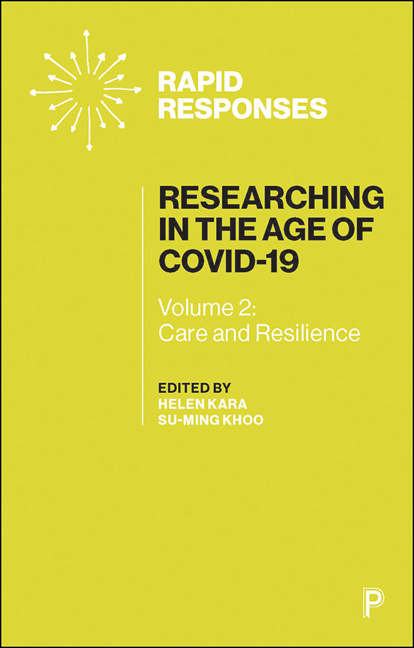7 - Using ICT to Research Maternal, Newborn and Child Health During the COVID-19 Pandemic in Nigeria
Published online by Cambridge University Press: 23 March 2021
Summary
Introduction
Research remains vital to realizing the Sustainable Development Goals (SDGs) (Fayomi et al., 2018), however it may be hampered by unexpected crises. Reducing global maternal mortality to less than 70 per 100,000 live births, neonatal mortality to 12 per 1,000 live births and under-five mortality rates to 25 per 1,000 live births are key SDG targets for 2030 (WHO, 2018). Improving access to quality maternal, newborn and child health (MNCH) services is central to achieving these targets. Despite progress in reducing maternal and neonatal mortality, Nigeria still contributes significantly to the global burden of maternal deaths, accounting for the highest proportion of stillbirths, pregnancy-related deaths and neonatal mortalities worldwide. In 2017, Nigeria accounted for almost a quarter of maternal deaths globally – the highest of any country that year (World Bank, 2019).
Addressing factors affecting the continuum of care from antenatal (ANC), delivery and postnatal care (PNC) remains critical (Yasuoka et al., 2018). Low MNCH services utilization can be attributed to two types of factors: user factors and health system factors. User factors include distance to health facility, cultural beliefs, practices and economic factors. Health system factors include competence and attitude of healthcare providers, infrastructure and equipment and organization of the health system (Kisiangani et al., 2020).
MNCH is often disproportionately affected by conflicts, natural disasters and pandemics. On 11 March 2020, COVID-19 was declared a global pandemic by the World Health Organization (WHO) (WHO, 2020), with devastating health and social consequences (Hausmann, 2020). Nigeria recorded the first confirmed case in sub-Saharan Africa (SSA) on 27 February 2020. The virus spread to all 36 states, with almost 45,000 confirmed cases and 900 deaths at the time of writing (NCDC, 2020).
Concerns arise that pandemic control in Africa will be difficult owing to the lack of a skilled health workforce; lack of suitable equipment, infrastructure and amenities; insufficient funding and poor governance (Kapata et al., 2020). Preventive and containment measures such as travel bans, school closures, lockdowns and bans on large gatherings were instituted in many of Nigeria's states (Adegboye et al., 2020). However, these measures were rendered ineffective by factors relating to poverty, food insecurity, overcrowded housing and absence of basic amenities, making compliance with social distancing difficult (Adegboye et al., 2020).
- Type
- Chapter
- Information
- Researching in the Age of COVID-19Volume II: Care and Resilience, pp. 78 - 88Publisher: Bristol University PressPrint publication year: 2020

